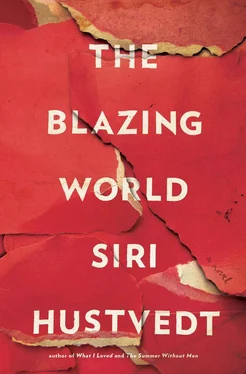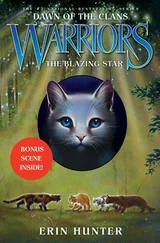The winter after I turned ten, we were in Paris for the holidays. It was a day before Christmas, and it was raining, I remember that gray Paris rain. Khun Ya said she had something for me and led me to her bedroom. I had never been inside that room; it was a little scary, actually, to find myself in there, with her big carved wooden bed and all her shining private things and the strong smells. She had lots of powders and unguents in glass bowls and bottles. She opened up a box lined with yellow silk and removed a small ring — two golden hands grasping a small ruby — which she gave to me. I didn’t hug her as I would have hugged my other grandmother, but I smiled and thanked her. Then she put her hands on my shoulders, turned me to the long mirror, and told me to look. I did. I felt one of her fingers press me near the top of my spine. She took my shoulders, pulled them back, let go, and stepped away from me. I knew she wanted me to hold the pose. “Now your chin,” she said. “Bring it up to lengthen your neck. You must learn, Maisie, how to command attention in a room. Your mother cannot teach you.”
I wore the ring, but I never told anyone what Khun Ya had said, and every time I looked down at those tiny gold hands, I felt disloyal to my mother, and I worried about it. Even though I couldn’t see exactly why Khun Ya thought standing up straight would command a room’s attention, her words of damnation, “Your mother cannot teach you,” were clear enough. Khun Ya was stepping in because she felt my mother was inadequate. I should have defended Mother, but I didn’t, and I felt like a traitor. I was thirteen when Khun Ya died suddenly on the operating table during surgery for her hip, and I didn’t feel much except vague amazement, and then I felt bad because I thought I should have been much, much sadder. She was my grandmother, after all. Ethan was sad. I think he cried in his closet. But then, Khun Ya loved Ethan. He commanded her attention all right, whether he was crumpled over or standing ramrod straight. The funeral was in Paris, and there were lots of strangers and flowers and heavy scents from women in stiff black suits with hard rows of glittering buttons.
After she died, my father showed me an album with photographs of his parents and some clippings he had brought from Paris. I saw how beautiful my grandmother had been. “She held court,” he said. She was quick with languages and spoke French, Italian, English, some Cantonese, and, of course, Thai. But wherever they went, my father said, she would learn just enough to say something charming and win over a guest. “She was clever but not thorough. What counted was the effect, not the knowledge, très mondaine .” And then he said something I never forgot. “In that way, I am like my mother. But I fell in love with your mother because she is exactly the opposite. She is deep and thorough and cares only about the questions she keeps trying to answer for herself. The world has little use for people like your mother, but her time will come.”
Children desperately want their parents to love each other. At least I did as a child. His words stayed with me as only a few sentences do over the course of a lifetime. A writer, whose name I can’t remember now, called these verbal memories “brain tattoos.” Mostly, we forget what people say, or we remember the gist of it, but I believe I have retained Father’s words exactly. I puzzled over them a lot. He had told me that he loved in my mother what he thought he himself lacked, a kind of depth, I guess. Worse, perhaps, he had said that the world didn’t have use for people like my mother. It — the world — preferred people like my father and grandmother. And yet, I felt that he thought my mother’s way was superior. Most important, I felt that he loved her for it. But then again, if he was so aware of not having it, I couldn’t help wondering if he didn’t have more of it than he thought he had. “Khun Ya didn’t like Mother, did she?” I asked him. I remember he looked surprised, but then he answered me. He said they came from different worlds. He said that Harriet had unsettled his mother’s expectations, and he smiled his smile and said, “Maisie, Maisie, Maisie.”
I didn’t know my father had lovers then. I didn’t know until much later. My mother talked openly about it only near the end of her life. There had been both men and women. She wanted to tell me and Ethan that she had known about the affairs, not all the details, but she had known. It had hurt her, but she never once feared she would lose him, “not once.” In their last years together, there had been no one but her. “We found each other again, and then he died.”
I remember a set of keys lying on a table in the hallway of our apartment. I remember looking at the foreign keys, and my father scooping them up swiftly, casually, and stuffing them in his pocket.
I remember standing outside my father’s study while he was on the telephone. I remember his low voice. I remember the words our place .
I know now that it’s easier to be disappointed by a spouse than by your parents. It must be because, at least in early childhood, parents are gods. They slowly become human over time, and it’s kind of sad, really, when they diminish into plain old mortals. Ethan says that I have a stupid bone that acts up regularly. He thinks I’m stupid about our parents. When he was fourteen, he says, he realized that our mère and our père —he says that to be clever and remote — were frozen against each other, two icicles. He didn’t like to be at home and stayed away a lot. I don’t remember it that way. I think it was much more complicated, and I’ve come to think that my father needed my mother more than she needed him. And I think she knew it.
Three days before my father died, Oscar and I had dinner with my parents. I was pregnant, and we talked about “the baby” a lot. Mother had been reading studies about infant development, about newborns and their capacities to imitate the facial expressions of adults, for example. I didn’t follow all the details she cited, which had to do with systems in our brains, but I remember I was very excited by something she called amodal perception — the different senses are crossed in babies, touch and hearing and sight and maybe smell, too. (I can’t tell you how many times I wrote down the names of books my mother gave me and then never read them. Oh well.) She talked more about visual development and cultural-language influences on perception, too, that we learn to see, and that much of that learning becomes unconscious. I sensed there was an urgent reason for her studies. She was trying to figure out why people see what they see.
Making documentary films means, at least in part, choosing how to see something, so I found the conversation compelling. Editing is the most obvious way of manipulating vision. And yet, the camera sometimes sees what you don’t — a person in the background, for example, or an object moving in the wind. I like these accidents. My first full-length film, Esperanza , was about a woman I befriended on the Lower East Side when I was a film student at NYU. Experanza had hoarded nearly all the portable objects she had touched every day for thirty years: the Chock Full O’ Nuts paper coffee cups, copies of the Daily News , magazines, gum wrappers, price tags, receipts, rubber bands, plastic bags from the 99-cent store where she did most of her shopping, piles of clothes, torn towels, and bric-a-brac she had found in the street. Esperanza’s apartment consisted of floor-to-ceiling stacks of stuff. At first sight, the crowded apartment appeared to be pure chaos, but Esperanza explained to me that her piles were not random. Her paper cups had their own corner. These crenellated towers of yellowing, disintegrating waxed cardboard stood next to piles of newspapers. The woman had also gathered bits and pieces of twine, ribbon, string, and wire on her journeys around the city and knotted the pieces together into a gigantic hairy, multicolored ball. She told me she just liked to do it. “It’s my way, that’s all.”
Читать дальше












